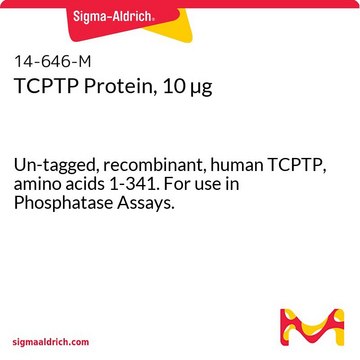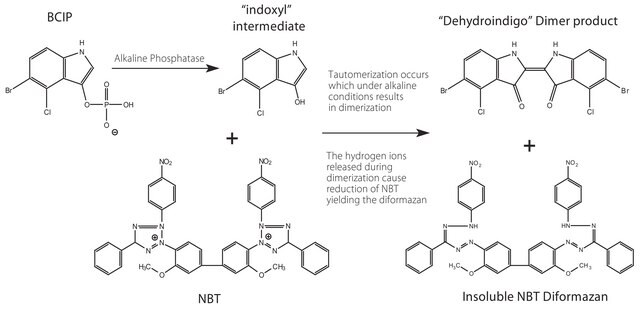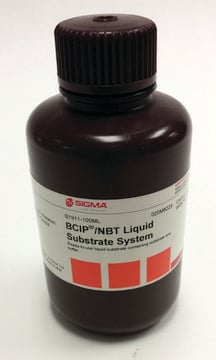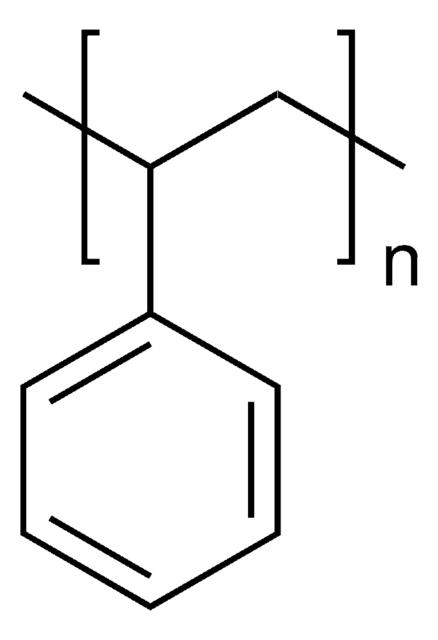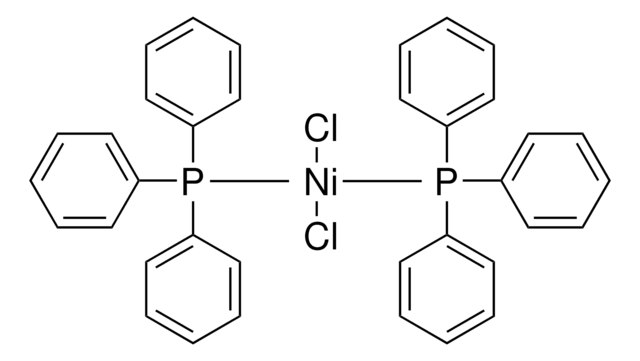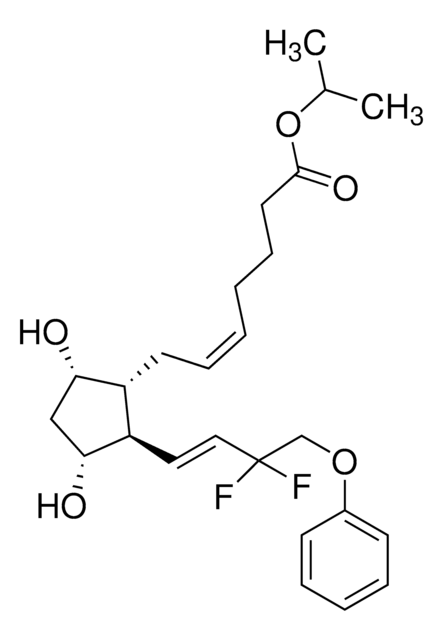SRP5075
PTPN2, active, GST tagged human
recombinant, expressed in E. coli, ≥70% (SDS-PAGE), buffered aqueous glycerol solution
Sinônimo(s):
PTPT, TCELLPTP, TCPTP
Faça loginpara ver os preços organizacionais e de contrato
About This Item
Código UNSPSC:
12352200
NACRES:
NA.32
Produtos recomendados
recombinante
expressed in E. coli
Ensaio
≥70% (SDS-PAGE)
forma
buffered aqueous glycerol solution
atividade específica
6928-9372 nmol/min·mg
peso molecular
~69 kDa
nº de adesão NCBI
Condições de expedição
dry ice
temperatura de armazenamento
−70°C
Informações sobre genes
human ... PTPN2(5771)
Descrição geral
Research Area: Cell Signaling
Protein tyrosine phosphatase, non-receptor type 2 (PTPN2), is one of the most abundant mammalian tyrosine phosphatase. The protein encoded by this gene is a member of the protein tyrosine phosphatase (PTP) family. By virtue of protein tyrosine phosphatase activity, PTPN2 is known to be a signaling molecules that regulate a variety of cellular processes including cell growth, differentiation, mitotic cycle, and oncogenic transformation involved in cell communication and signal transduction.
Protein tyrosine phosphatase, non-receptor type 2 (PTPN2), is one of the most abundant mammalian tyrosine phosphatase. The protein encoded by this gene is a member of the protein tyrosine phosphatase (PTP) family. By virtue of protein tyrosine phosphatase activity, PTPN2 is known to be a signaling molecules that regulate a variety of cellular processes including cell growth, differentiation, mitotic cycle, and oncogenic transformation involved in cell communication and signal transduction.
Ações bioquímicas/fisiológicas
Protein tyrosine phosphatase, non-receptor type 2 (PTPN2) regulates interferon signaling and the endoplasmic reticulum stress response in pancreatic β-cells during autoimmune diabetes. It serves as a crucial prognostic marker that influences the progression of pancreatic adenocarcinoma (PAAD) by activating the JAK-STAT signaling pathway. Silencing PTPN2 leads to a significant reduction in PAAD cell growth, migration, and invasion, while also triggering cell cycle arrest and apoptosis in PAAD cells.
forma física
Supplied in 20mM MOPS, pH 7.5, 50mM NaCl, 10mM glutathione, 0.25mM DTT, 0.1mM PMSF, 30% glycerol.
Nota de preparo
after opening, aliquot into smaller quantities and store at -70 °C. Avoid repeating handling and multiple freeze/thaw cycles
Código de classe de armazenamento
10 - Combustible liquids
Classe de risco de água (WGK)
WGK 1
Ponto de fulgor (°F)
Not applicable
Ponto de fulgor (°C)
Not applicable
Certificados de análise (COA)
Busque Certificados de análise (COA) digitando o Número do Lote do produto. Os números de lote e remessa podem ser encontrados no rótulo de um produto após a palavra “Lot” ou “Batch”.
Já possui este produto?
Encontre a documentação dos produtos que você adquiriu recentemente na biblioteca de documentos.
Tetsuya Yamamoto et al.
Biochemical and biophysical research communications, 297(4), 811-817 (2002-10-03)
In the previous study, we demonstrated that the nuclear isoform of T-cell protein-tyrosine phosphatase (TC-PTP) dephosphorylated and deactivated signal transducer and activator of transcription 5a (STAT5a) and STAT5b, thereby negatively regulating prolactin (PRL)-mediated signaling pathway. In this study, we examined
Sanjeev Gupta et al.
FEBS letters, 532(1-2), 61-66 (2002-12-03)
PTP-S2/TC45 is a nuclear protein tyrosine phosphatase, which induces p53-dependent apoptosis. Here we show that the p53 protein level increased in MCF-7 cells in response to PTP-S2 overexpression. PTP-S2-induced p53 protein was transcriptionally active and it could activate caspase-1 gene
Nossa equipe de cientistas tem experiência em todas as áreas de pesquisa, incluindo Life Sciences, ciência de materiais, síntese química, cromatografia, química analítica e muitas outras.
Entre em contato com a assistência técnica
